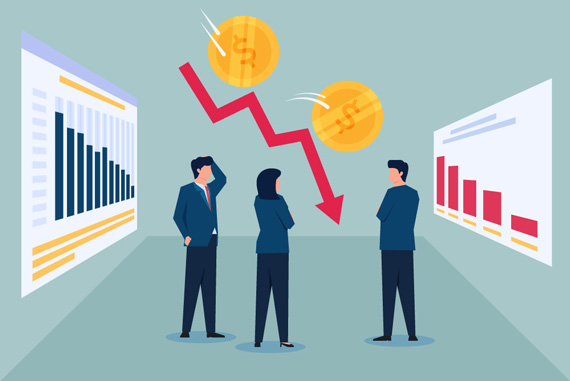Corporate Insolvency: when is a company considered insolvent?
A company that cannot pay its debts when they are due is considered to be insolvent.
It is vital that all company shareholders and directors are aware of any insolvency issues, as it is an offence for a business to continue to operate and incur more debts while insolvent.
Company shareholders and directors may also be held personally liable for unpaid debts incurred from the time the business became insolvent.
Seek early assistance from our experts
By seeking early assistance from professionals, it may be possible to salvage the financial situation – and even the business. Our highly experienced team works with clients to achieve a fair result, as simply and quickly as possible.
We pride ourselves on protecting our clients as we guide them through the process of insolvency and safeguard them from any harsh or unfair treatment.
As a third-party advocate, we are able to take the emotional heat out of negotiations and find a solution that is fair and equitable to all stakeholders.
Key points about corporate insolvency
Company shareholders and directors may also be held personally liable for unpaid debts
It may be possible to salvage the financial situation – and even the business by seeking professional assistance early
We protect our clients as we guide them through the process of insolvency and safeguard them from unfair treatment

Common corporate insolvency options for companies in financial distress
The most common corporate insolvency procedures are:
There are several warning signs that a company may become insolvent:
- Problems with cash flow
- The need to extend payment terms with creditors
- Refinancing to pay bills
- Solicitors’ letters, demands, summonses, judgements or warrants issued against the company
Have questions or need assistance? Reach out to our experts today

Corporate solutions for businesses experiencing financial distress
Corporate Insolvency
A company that cannot pay its debts when they are due is considered to be insolvent. There are several warning signs that a company may become insolvent…
Read moreReceivership
If a company is in financial difficulty, a receiver may be appointed to take control of some or all of its assets to ensure the payment of secured creditors…
Read moreLiquidations
When the assets of a business are liquidated, it means they are converted into cash. This situation spells the end for the business, as with stock, equipment…
Read moreDeed of Company Arrangement (DOCA)
A DOCA can help a company avoid liquidation and remain in business allowing it to continue with all or some of its usual business operations…
Read moreSmall Business Restructuring
As Small Business Restructuring Practitioners, our Registered Liquidators ensure you benefit from the insolvency reforms. Jirsch Sutherland’s Registered Liquidators have vast experience in restructuring small businesses…
Read moreVoluntary Administration (VA) Experts
Voluntary Administrations (VAs) allow insolvent companies to continue to operate, or, if this is not possible, they provide for a greater return to creditors than they would otherwise receive if the business was liquidated…
Read more








